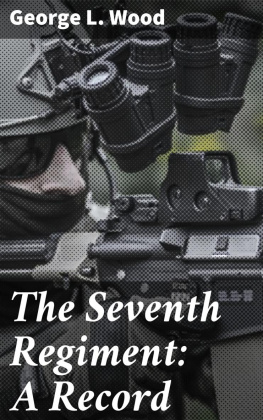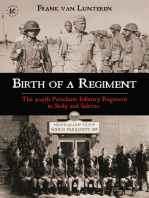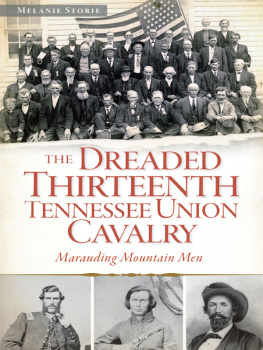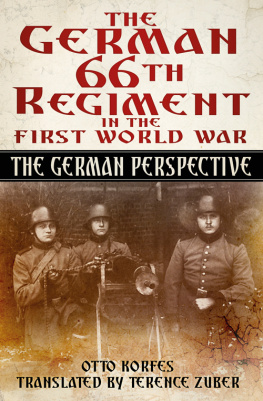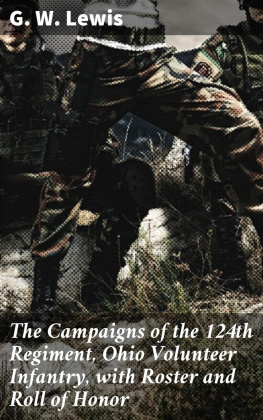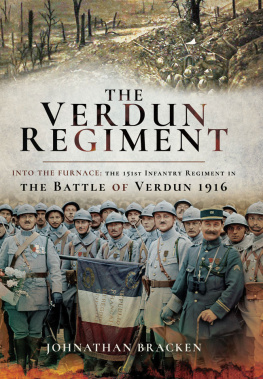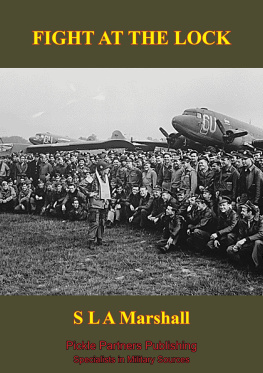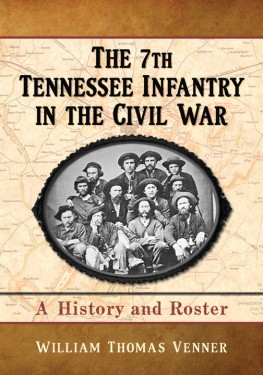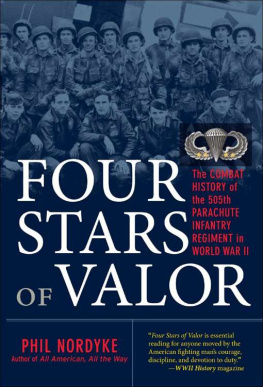PREFACE.
Table of Contents
MY OLD COMRADES:
In writing out this record I have gone back to the morning time of my own life, and lived once more in that other day that not only tried, but proved men's souls. Insignificant as my work may appear as a literary production, it carries with it the most sacred memories of the past. In writing, I have lived over again the days when the boom of cannon, the rattle of musketry and the old rebel yell were familiar sounds to our ears. If a shade of mournfulness hovers over the failure of the cause for which these brave men fought and many fell, it is not a mournfulness born of regret. When we who wore the gray put away forever the musket and swordand let me say, my comrades, swords and muskets that had been bravely bornewe did so in sorrow but not in malice or hate. And today, I am sure, where one of the old regiment lingers yet a little while this side of the dark river, he accepts in good faith the terms of his parole, and is a peaceful and faithful citizen of the United States; not only faithful, but as loyal to the stars and stripes as we were once to that other flag which we followed for four long years, and which was woven from an honest belief of a people's need.
Now, to my old comrades, whether in flesh or spirit, to whom this little compilation has carried me back with such tremendous force, and to keep alive whose fair fame I have written, I can only say as my last wordsGod bless you!
A. J. Vaughan.
The Thirteenth Regiment,
Table of Contents
TENNESSEE INFANTRY.
Table of Contents
This was one of the regiments that made Cheatham's Division, and Smith's-Vaughan's and Gordon's Brigades so famous in the Army of Tennessee. It was organized and mustered into service on the third day of June, 1861, in answer to a call of Governor Isham G. Harris for seventy-five thousand volunteers. At that time it was the seventh infantry regiment organized in West Tennessee and the thirteenth in the State. It was made up of the "flower of the South" young men, most of whom were fresh from the best institutions of learningaspiring, hopeful and ambitioussons of men of education, wealth and influencethe very best material for volunteer service. It was composed of ten full companiesfive from Fayette county, one from Shelby, one from Dyer, one from McNairy, one from Gibson, and one from Henderson, and were as follow:
Company A, Fayette Rifles, Captain William Burton of Somerville, Tenn.
Company B, Macon Grays, Captain J. L. Granberry, Macon, Tenn.
Company C, Secession Guards, organized at Germantown, Tenn., and composed of Mississippians and Tennesseeans, Captain John H. Morgan, Horn Lake, Miss.
Company D, Yorkville Rifles, Captain John Wilkins, Yorkville, Tenn.
Company E, Dixie Rifles, organized at Moscow, Tenn., and composed of Tennesseeans and Mississippians, Captain A. J. Vaughan, Marshall county, Miss.
Company F, Wright Boys, Captain Jno. V. Wright, Purdy, McNairy county, Tenn.
Company G, Gaines Invincibles, Captain W. E. Winfield, LaGrange, Tenn.
Company H, Yancey Rifles, Captain Robert W. Pittman, Hickory Withe, Tenn.
Company I, Forked Deer Volunteers, Captain G. S. Ross, Forked Deer, Tenn.
Company K, Dyer Grays, Captain S. R. Latta, Dyersburg, Tenn.
On the following day, the 4th of June, the election of field officers was held, and resulted in the election of Captain Jno. V. Wright of Company F as Colonel, Captain A. J. Vaughan of Company E as Lieutenant-Colonel, and Captain W. E. Winfield of Company G as Major.
The regiment was ordered at once by way of Memphis to Randolph, on the Mississippi river, when the organization was completed by the appointment of Lieutenant W. E. Morgan, Company C, Adjutant; Dr. J. A. Forbes, Company E, Surgeon; Dr. B. F. Dickerson, Company I, Assistant Surgeon; W. E. Dyer, Company G, Commissary; L. B. Cabler, Company A, Regimental Quartermaster; Peter Cole, Company H, Sergeant-Major; and W. D. F. Hafford, Chaplain.
The regiment remained at Randolph engaged in drilling, camp duty, etc., until July 26th, when it was ordered to New Madrid, Mo., and placed in a brigade under command of Colonel J. P. McCown, who, under orders from General Gid. J. Pillow, was about to make a campaign into South-west Missouri to prevent reinforcements being sent to the Federal General Lyons, then operating in that section.
On the 18th of August, 1861, the troops were moved in the direction of Benton, Mo., where the Thirteenth Regiment arrived on the 19th. This was the first campaign or march of the regiment, and though in the middle of summer during a severe drouth, under a burning sun and over roads shoe deep in sand and dust, it was cheerfully performed, and showed an endurance and fortitude rarely witnessed in new troops. The object of the campaign being accomplished, the command returned to New Madrid on Sept. 2, and on the following day the regiment was ordered to Hickman, Ky., where it was placed in Cheatham's Brigade. At Hickman, on Sept. 4, 1861, the regiment for the first time caught a glimpse of the "boys in blue" and saw the first "burning of gunpowder," which was an artillery duel between the Federal gunboats and the Confederate land batteries; but it was at long range, no damage was done, and the gunboats were soon withdrawn up the river.
About this time General Leonidas Polk, commanding the Mississippi Department, determined to occupy Columbus, Ky., and ordered General B. F. Cheatham to proceed at once to that point, where the Thirteenth Regiment arrived Sept. 6, 1861, and was among the first, if not the first, to occupy that important position. Nothing but camp duty, throwing up heavy fortifications and hard and constant drilling occurred in the regiment until Nov. 7, when it was reported that the enemy in heavy force was advancing on Columbus on both sides of the river. The long roll was sounded and every regiment reported at once and fell into line on its parade ground. All were excited and anxious to meet the enemy. Soon it was ascertained that a heavy force had disembarked from their gunboats above and were moving down to a point near Belmont, on the opposite side of the river.
The Thirteenth Regiment, under command of Colonel John V. Wright, having been supplied with ammunition, was ordered at once to cross the river and take position on the extreme left of our line of battle near Watson's Battery. Never was a regiment more anxious or more willing to face an enemy. It was the maiden fight of the regiment and every man felt that he was "on his mettle." Though our position was an unfortunate onein an open field, the enemy being under cover of thick woodsthis regiment met the advance with the steadiness of veterans and held its position and fought while comrades fell on every side until the last round of ammunition was exhausted, and the order given to fall back to the river. By the time the regiment reached the river reinforcements had crossed from Columbus which engaged the enemy and checked his further advance. The Thirteenth, obtaining a fresh supply of ammunition, rallied and again advanced gallantly to the contest, which had become fierce and obstinate. In a short time the Federals were driven from their position and fled to their gunboats, hotly pursued by the Confederates. At their gunboats, such was their haste, confusion and disorder that they did not attempt to return the fire. The Federal loss here, as in previous engagements, was heavy.




